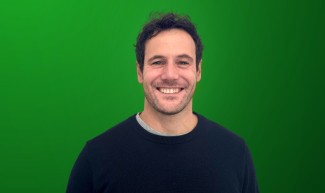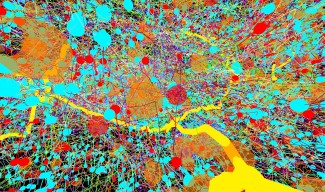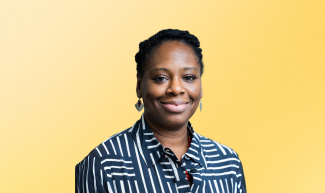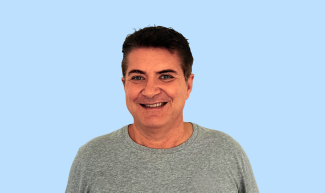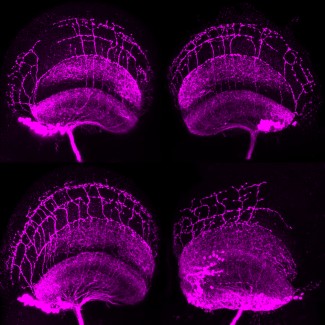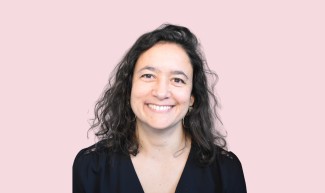Bassem Hassan is the Paris Brain Institute’s Scientific Director and Director of Core Facilities
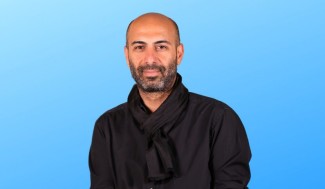
When and how did you come to join the Paris Brain Institute?
I took up my role at the Paris Brain Institute in 2016 after responding to an international call for proposals. I had spent 15 years as a team leader at the Vlaams Instituut voor Biotechnologie (VIB) in Belgium and was looking for a new challenge. I joined the Paris Brain Institute as team leader with all my postdoctoral fellows and two PhD students, and three years later I was appointed Scientific Director, taking over from Alberto Bacci. Shortly afterwards, in agreement with Alexis Brice, the Executive Director of the Paris Brain Institute, and the Scientific Advisory Board, we decided that it would be logical for me also to become Director of Core Facilities.
What is your role as Scientific Director?
I would say that there are two levels of responsibility: there is the policy level, which relates to the Paris Brain Institute’s scientific strategy, and then there is the more operational level.
In conceptual terms, the Scientific Director is responsible for developing the Institute’s scientific policy, in collaboration with the senior management team and the Department of Scientific and Medical Affairs, and this serves as a basis for determining the key strategic and technological priorities. The Scientific Director therefore needs to be able to constantly envisage the short-, medium- and long-term future of the Institute, while also concentrating on the here and now to ensure that the chosen scientific strategy is applied in operational terms.
In a more pragmatic sense, the Scientific Director is also in charge of the day-to-day application of the scientific policy. For example, I am closely involved in deciding on the profiles of the teams recruited via calls for proposals. I also need to be aware of the technical and scientific requirements of teams and facilities and meet them as best as possible. At a different level, the Scientific Director is in close contact with the Innovation Directorate to ensure that the Institute’s scientific and technological policy intersects with the innovation policy and strategy. Finally, in collaboration with all the departments, I work to develop international relations with other institutions.
So to sum up, the Scientific Director’s task is to ensure that all the jigsaw pieces fit together perfectly to create a coherent overall image of the Institute’s activities.
The Scientific Director needs to have his head in the clouds and his feet on the ground at the same time, all the time
Dans cette élaboration de la politique scientifique et dans les axes stratégiques, qu'est-ce qui rend l'Institut du Cerveau particulièrement attractif ?
In devising the scientific policy and strategic priorities, what makes the Institute particularly attractive?
The Institute has the advantage of being based at a world-renowned hospital, and this is one of its key strengths. The proximity with Sorbonne University and the Neuroscience Medical-University Department of Pitié-Salpêtrière (within the Paris Public Hospital Network or AP-HP) means that patients can be actively involved in the Institute’s clinical and translational research. Having scientists, clinicians and patients all working together in the same place breaks down disciplinary barriers, encourages interaction and shortens deadlines. There are few places in the world where expertise in all these different fields can be found within a single building.
Another thing that sets the Institute apart is our core facilities. They give us the opportunity to investigate neuroscience at every level, from DNA sequencing to human brain imaging and expertise in cognitive and behavioral testing. These state-of-the-art facilities are given ample resources by the Institute to ensure they remain at the forefront of technology, offering scientists access to a broad spectrum of research fields.
The third characteristic is the highly attractive funding programs offered to research teams. Whether the substantial five-year grants awarded to teams or specific calls for proposals (Big Brain Theory (BBT) and Carnot funding, and soon PhD scholarships, etc.), the funding offered by the Paris Brain Institute enables scientists to embark on bold, “high-risk” research projects, such as pilot studies to develop proofs of concept, which would not be funded by traditional external competitive calls for proposals.
The numbers don’t lie: following the latest call for proposals to host new teams we received nearly 260 applications from all over the world.
This model is unique to France and probably the whole of Europe. And we can all be very proud of it.

